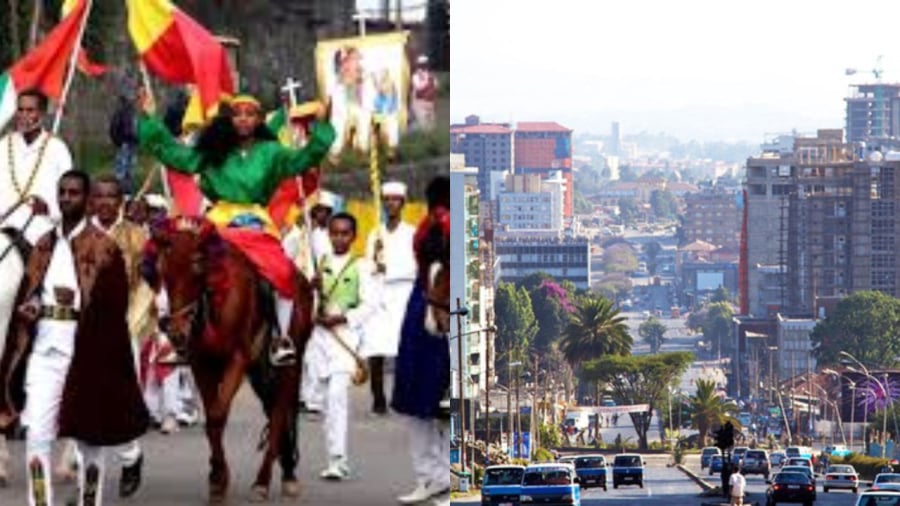Why is there a year offset?
As the world’s common calendar marked September 11, 2024, Ethiopia celebrated the end of 2016 and ushered in the year 2017. Ethiopia follows a unique calendar system that differs from the rest of the world.
Located in East Africa, Ethiopia is the second most populous country on the African continent. With an area of 1,112,000 km2, it is more than three times the size of Vietnam (331,690 km2).
Ethiopia utilizes a distinct calendar system, known as the Ethiopian calendar or Coptic calendar. While most of the world follows the Gregorian calendar, the Ethiopian calendar traces its roots to ancient Egypt, dating back to 525 AD.
The Ethiopian calendar comprises 13 months, each lasting 30 days. The final month has 5 or 6 days, depending on whether it is a leap year. Consequently, the Ethiopian New Year usually falls around September 11 on the Gregorian calendar.

Ethiopia enters the year 2017 while the world is in 2024. Illustrative image
Ethiopia boasts a rich tradition, religion, and culture, and the use of the Coptic calendar is deeply rooted in their society. The Ethiopian Orthodox Tewahedo Church employs this calendar to determine significant religious celebrations such as Christmas, Easter, and other liturgical events.
The Coptic calendar also plays a vital role in the daily lives of Ethiopians, influencing activities such as planting and harvesting, local festival timings, and age calculations.
Are there any disadvantages to using the Coptic calendar?
Ethiopia actually uses both calendar systems, and this dual usage can present certain inconveniences in modern life. For instance, in international business and education, Ethiopia adheres to the Gregorian calendar. Similarly, when registering births, citizens typically need to convert the dates to the Gregorian calendar, which can lead to confusion and challenges in information exchange.
Visitors to Ethiopia may feel like they have “traveled back in time” upon encountering the Coptic calendar. While this sensation may spark curiosity and interest, tourists also need to adapt to the calendar difference and may require assistance from locals to plan their trips effectively.
This dual calendar system may be comparable to using both lunar and solar calendars, but the significant year offset adds complexity to the date conversion process.
Despite the inconveniences, Ethiopia continues to embrace both calendar systems as a testament to its commitment to preserving its rich heritage and traditions. This also underscores the respect for cultural diversity and variation on a global scale.
Ethiopia is a popular tourist destination, attracting millions of visitors annually with its pristine natural landscapes and unique cultural offerings. The New Year celebrations on September 11 (Gregorian calendar) further enhance the country’s appeal, marking the end of the rainy season and the blooming of the Adey Abeba flowers. Ethiopians celebrate this occasion with a plethora of vibrant festivities, welcoming the new year with hope and enthusiasm.
What Holidays and Observances Are in July?
July is a month of significant celebrations and observances, both nationally and internationally. From cultural festivals to historical anniversaries, this month has it all. As we step into the seventh month of the year, let’s explore the question on everyone’s mind: What holidays and events does July have in store for us? It’s time to dive into the exciting calendar of July and uncover the special days that await us.



































